
Whatsapp:+86 18339211009 Address: 1000 meters west of the gate of Yanjin County Forest Park, Xinxiang City, Henan Province.

In the field of modern agricultural production and grain processing, screw conveyors are key equipment for grain transportation, and their performance directly affects production efficiency and product quality. Conventional Grain Augers vs. Custom Screw Conveyor have their own characteristics and are suitable for different production scenarios. This article will compare the structural characteristics, performance differences, applicable scenarios and economic efficiency of the two in detail, providing a scientific selection reference for grain processing companies.
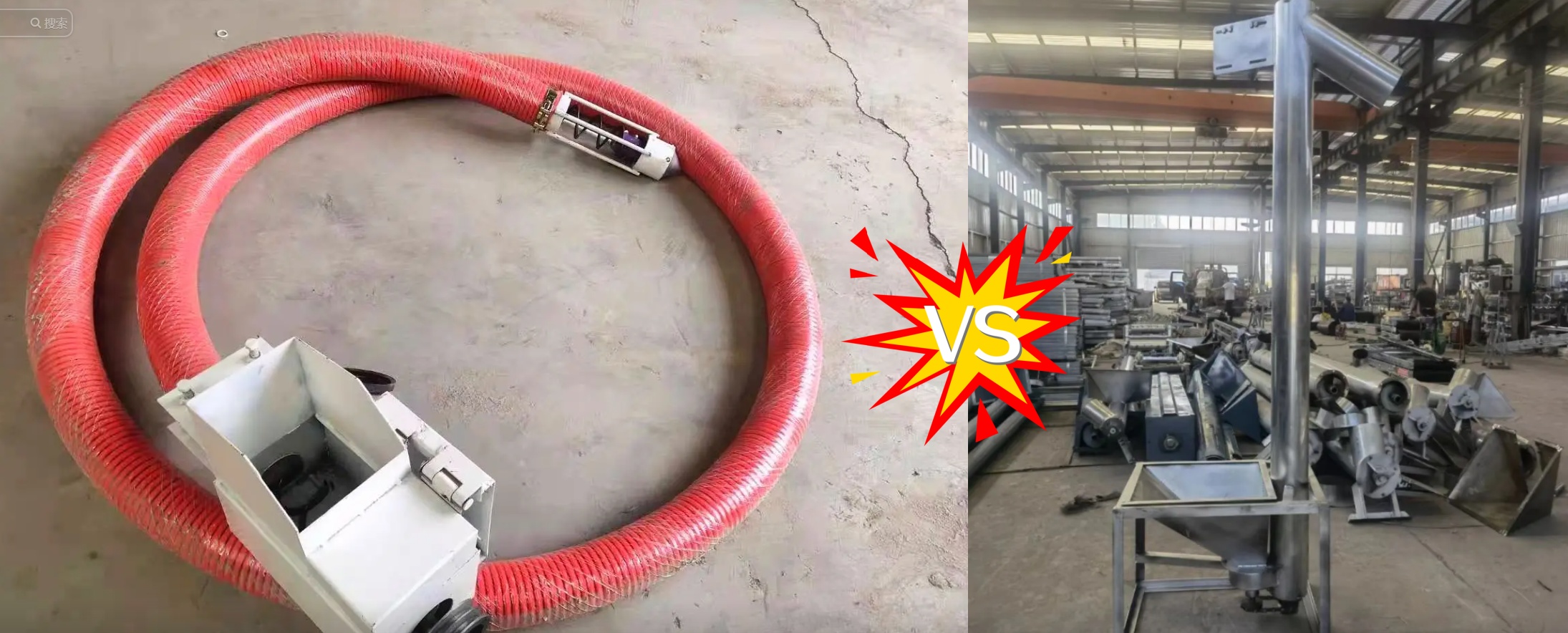
The traditional Grain Auger Conveyor is based on standardized production and adopts fixed specifications of screw diameter (such as 100mm, 200mm, 315mm, etc.), pitch and speed configuration. Its typical structure includes
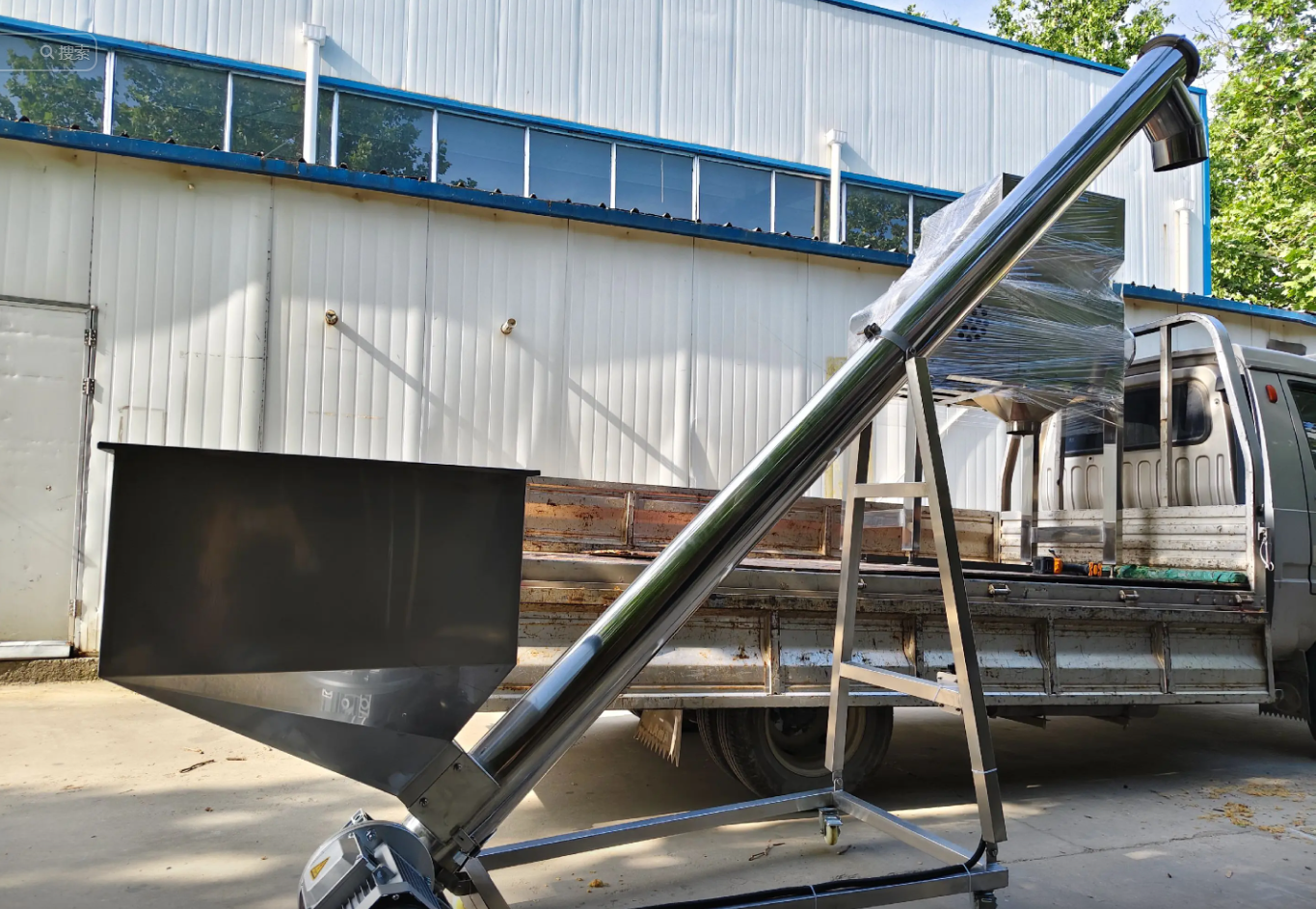
Axis spiral: a single main shaft welded spiral blade, suitable for grains with good fluidity (such as wheat and corn);
Tube or trough shell: closed design to prevent dust from flying out, mainly horizontal or small angle (≤20°) conveying;
Universal motor and reducer: power range 1.1~15kW, speed 30~140r/min, suitable for conventional conveying needs.
Performance advantages
Low cost: standardized production reduces mold and assembly costs, the price of a single unit is usually US$500~5000, suitable for the initial investment of small and medium-sized grain companies.
Easy maintenance: simple structure, bearings and seals are universal accessories, easy maintenance and replacement, maintenance cost accounts for 5%~10% of the original value of the equipment/year.
Quick deployment: no special installation and debugging is required, it can be directly connected to conventional grain silos and processing equipment (such as rice mills and packaging machines), shortening the production cycle.
Limitations and applicable scenarios
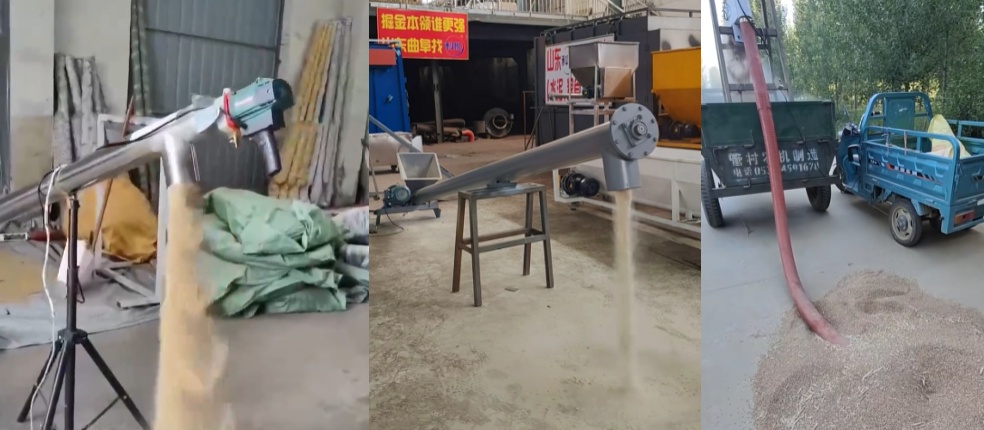
Only applicable to conventional grains (such as rice and soybeans), and low efficiency in conveying high-humidity (moisture content > 15%), easy-to-cake or abrasive materials (such as slag and broken glass);
The inclination angle is limited, and the conveying volume drops significantly when it exceeds 20°, and it is easy to cause material backflow.
Typical scenarios
Horizontal silo operation in small and medium-sized grain depots (such as conveying grain from bin A to bin B);
Short-distance conveying (<10 meters) in grain processing plants, such as feeding cleaned grain into a crusher.
Customized screw conveyors are demand-oriented and designed for special material characteristics or complex working conditions. Common types include
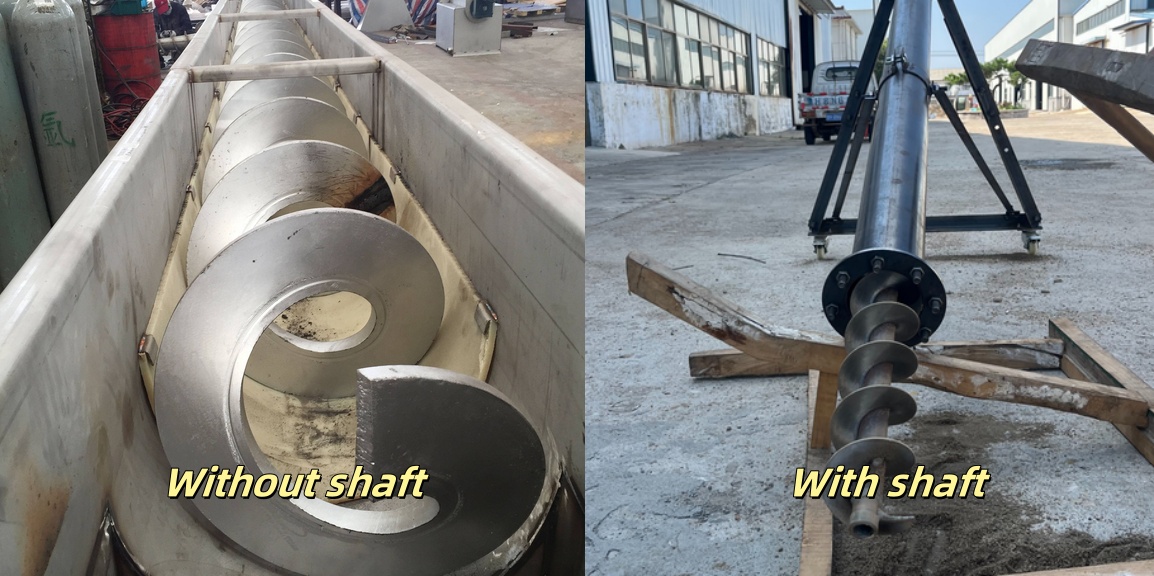
Shaftless screw conveyor: The central shaft is eliminated and an integral spiral blade is used to avoid material winding around the main shaft. It is suitable for high-viscosity grains (such as wet corn and moldy feed). The diameter can reach 200~800mm, the pitch is 300~600mm, the speed is 20~60r/min, and the conveying inclination can reach 30°~45°.
Wear-resistant screw conveyor: The spiral blades are made of wear-resistant alloy (such as manganese steel) or sprayed with tungsten carbide on the surface, and the shell is lined with polyurethane or stainless steel, which increases the service life by 3~5 times. It is suitable for grains containing sand (such as rice in the beach sunning field), grains mixed with gravel, or long-term conveying of highly abrasive materials (such as ore particles).
Large-angle screw conveyor: It adopts deep bucket spiral blades + anti-backflow baffles, with an inclination of up to 60°, and realizes vertical lifting effect with frequency conversion control. Large grain depots transport grains directly from the ground to the top of the 15-meter-high silo, saving the combined cost of the elevator and horizontal conveyor.
Food-grade custom screw conveyor: Made of 304 stainless steel, the surface roughness of the spiral blade is ≤Ra0.8μm, and the seamless welding process prevents material residue, which meets the requirements of FDA and GMP certification.
Scenario: Flour mills convey high-grade wheat flour and starch mills convey edible corn starch to ensure food safety.
Performance advantages
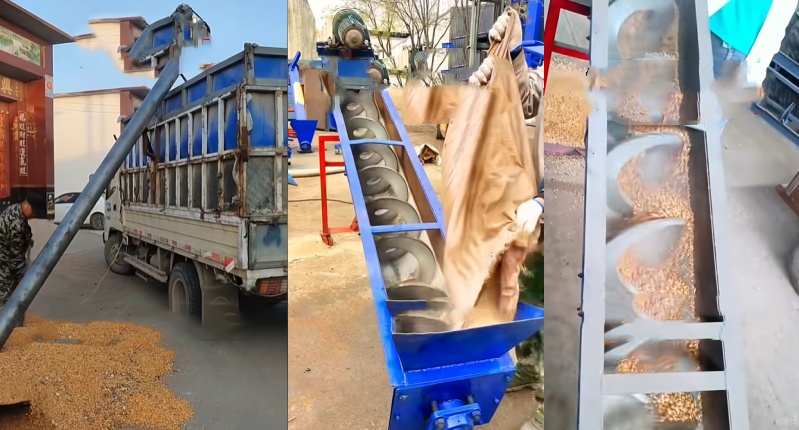
Efficient adaptation: Optimize parameters according to material characteristics, such as designing a large pitch for sorghum rice (pitch/diameter = 1.2), and the conveying capacity is increased by 40% compared with traditional models.
Adaptation to complex working conditions: It can meet special requirements such as high temperature (≤200℃), explosion-proof (such as dust environment), and high-precision measurement (such as adding trace elements).
Long-term cost-effectiveness: Although the initial investment is 30%~80% higher than that of traditional models, the comprehensive cost (energy consumption + maintenance + downtime loss) is reduced by more than 50% in high-load and long-cycle operations.
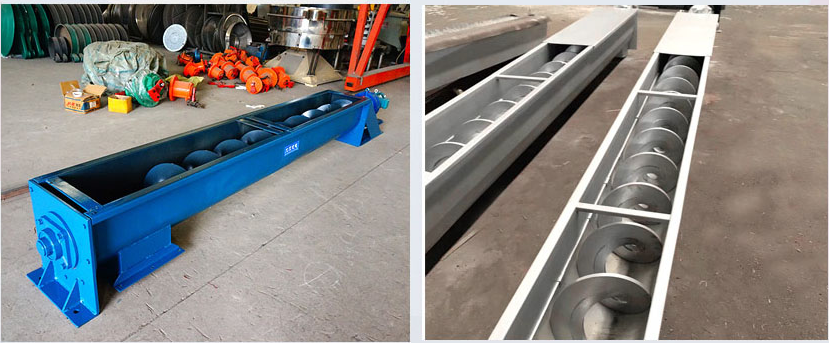
|
Dimension |
Traditional Grain Screw Conveyor |
Customized Screw Conveyor |
|
Procurement Cost |
Low ($500–$5,000) |
High ($2,000–$20,000+) |
|
Suitable Materials |
Dry, low-viscosity grains (moisture <15%) |
High-moisture, high-viscosity, abrasive, or special-process materials |
|
Conveying Distance/Inclination |
Short distance (<10 m), horizontal or small inclination (≤20°) |
Long distance (>20 m), large inclination (≤60°) |
|
Maintenance Frequency |
High (requires quarterly cleaning of blade adhesion) |
Low (wear-resistant materials or shaftless design reduces maintenance) |
|
Typical Clients |
Township grain stations, small flour mills |
Large grain enterprises, food processing plants, port terminals |
If the material is conventional grain and the working conditions are simple: choose a traditional model, and give priority to the LS series standard models (such as LS250, LS400).
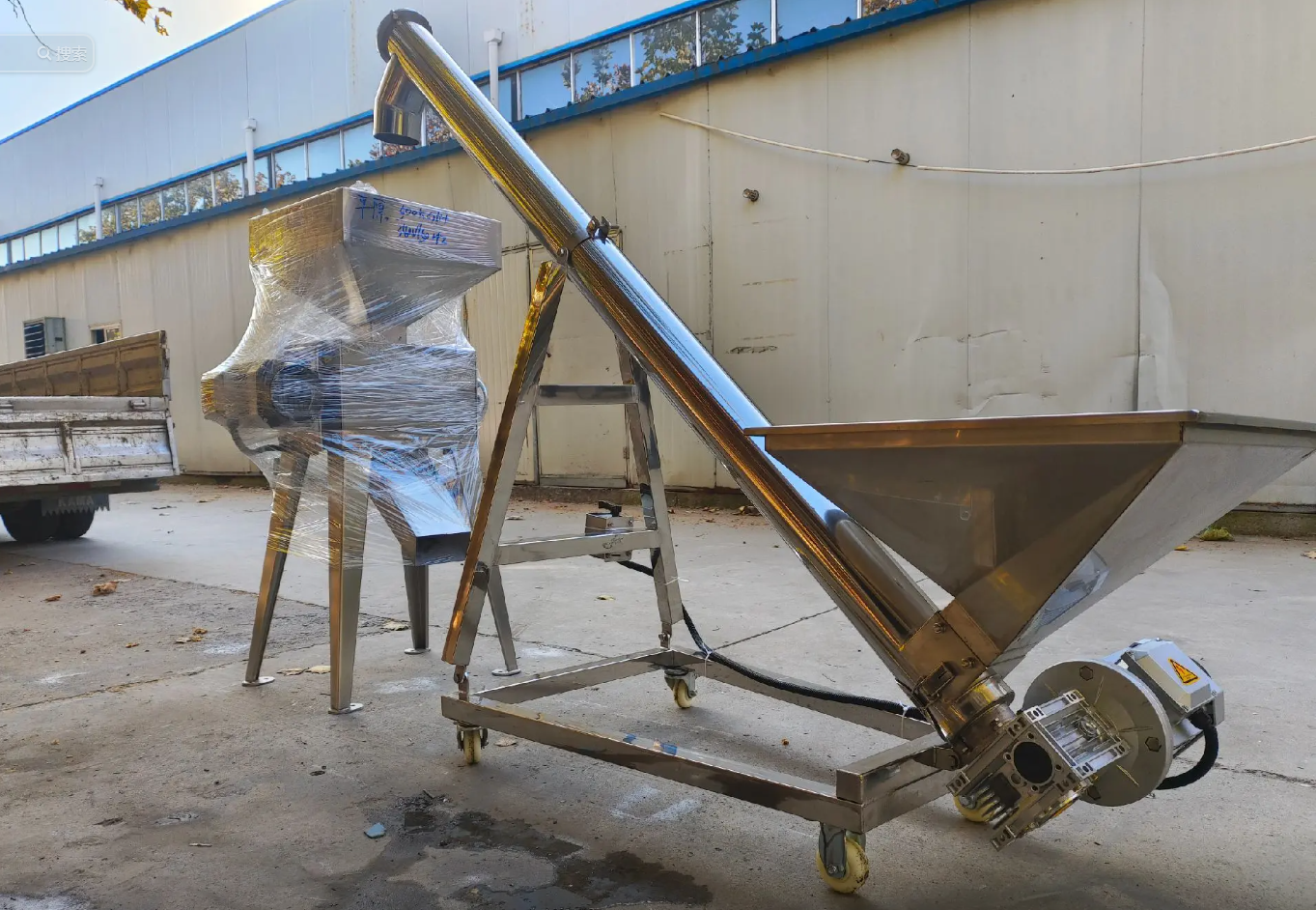
If the following conditions exist, customization is recommended:
The moisture content of the material is greater than 15% or it is easy to agglomerate (such as wet grain for brewing)
The conveying angle is greater than 20° or vertical lifting is required
The environment requires explosion-proof, hygienic or wear-resistant (such as flour workshop, mining scene).
Cost calculation: Compared with the total cost of ownership for 3 years (purchase + energy consumption + maintenance), customized models are often more economical in high-load scenarios.
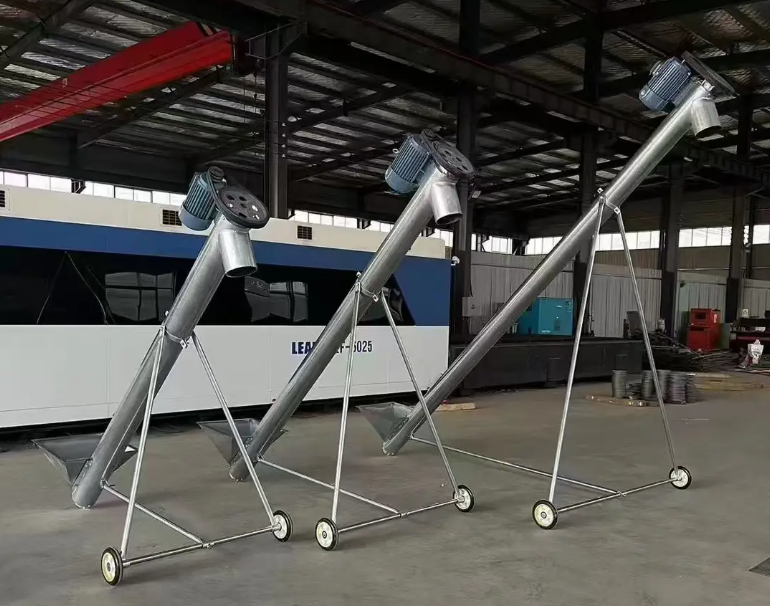
Traditional grain screw conveyors are still the preferred solution under standard working conditions due to their economic and reliable characteristics; and customized screw conveyors can solve special production needs and create greater value through personalized design. It is recommended that enterprises choose the most suitable conveying solution based on actual material characteristics, production processes and long-term planning. For large grain processing enterprises, a hybrid model of "basic model + key parts customization" can be considered to balance cost and performance.
NOTE: You can also send a message to us by this email sale@xxdahan.com, we will reply to you within 24 hours. Now tell us your needs, there will be more favorable prices!